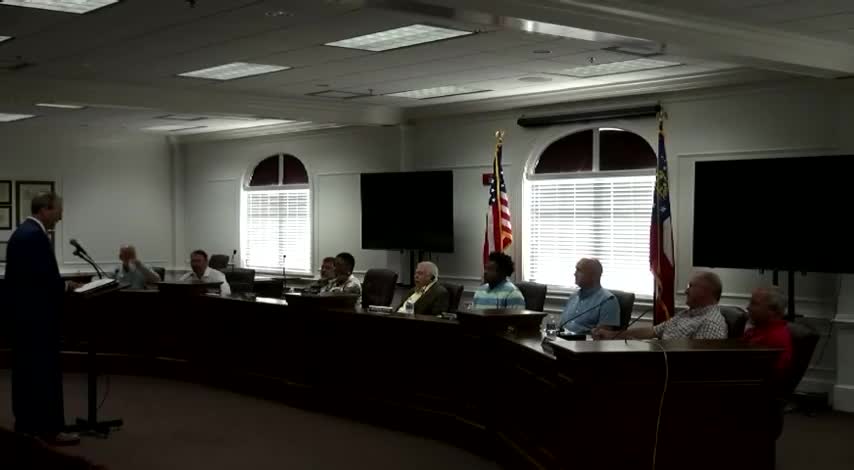Drug court judge outlines program, treatment expansion and funding opportunities for Appling County
Get AI-powered insights, summaries, and transcripts
Subscribe
Summary
A judge described the Brunswick Judicial Circuit drug court's two‑year intensive program, reported that a regional grant will fund treatment services in Appling County for two years, and offered to coordinate opioid‑trust funds and other local resources to expand services.
A judge who oversees the Brunswick Judicial Circuit's drug court gave commissioners a detailed overview of the program's structure, outcomes and local operations, and requested coordination with county officials around opioid‑trust or other funds that could support local services.
The judge said drug court in the circuit dates to 1998 and that the program is intensive and staged: participants typically undergo a two‑year regimen with daily or frequently scheduled sessions in early stages, random visual drug screening and mandatory vocational and community‑service requirements. "Drug court is a 2 year program. It's very intensive," the judge said.
The presentation noted several operational details: treatment providers have provided on‑site services in Appling County, the program charges a $100 monthly participant fee, and the drug court employs peer support specialists and lab‑quality testing equipment (the presenter named Thermo Fisher as the testing provider). The judge said the region received $400,000 in grant funding to provide treatment and services in Appling County for two years and offered to serve as a point of contact to help county staff coordinate opioid funds or other resources.
Why this matters: county coordination and local funding can expand access to drug court services that divert people from incarceration and deliver treatment and reentry supports. The judge framed drug court as a high‑intensity, evidence‑based program with measurable economic and social returns according to the presentation.
